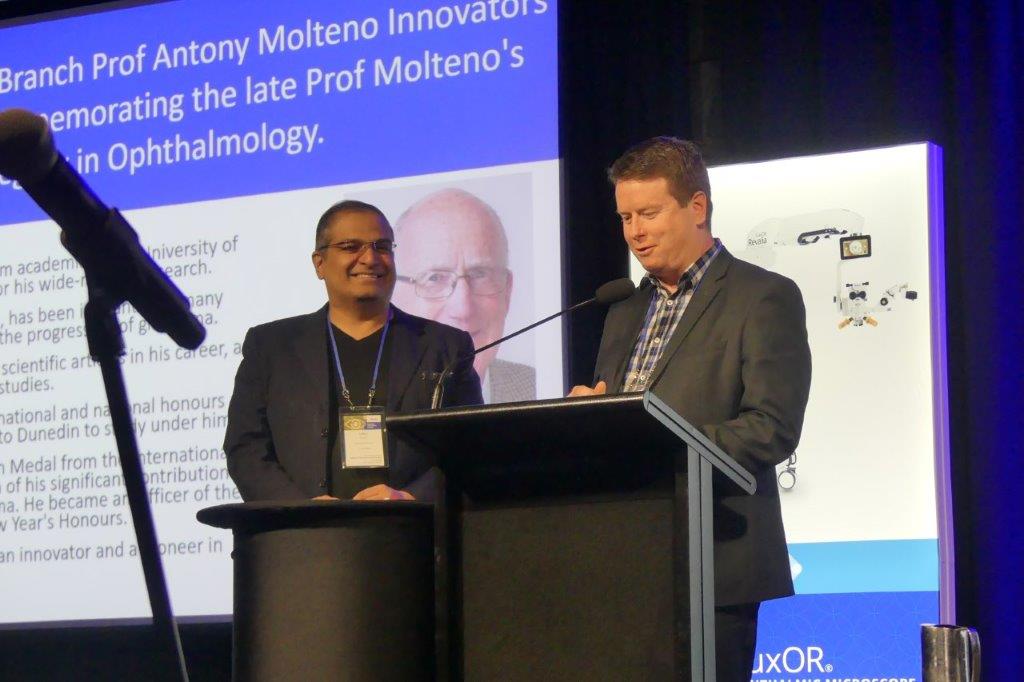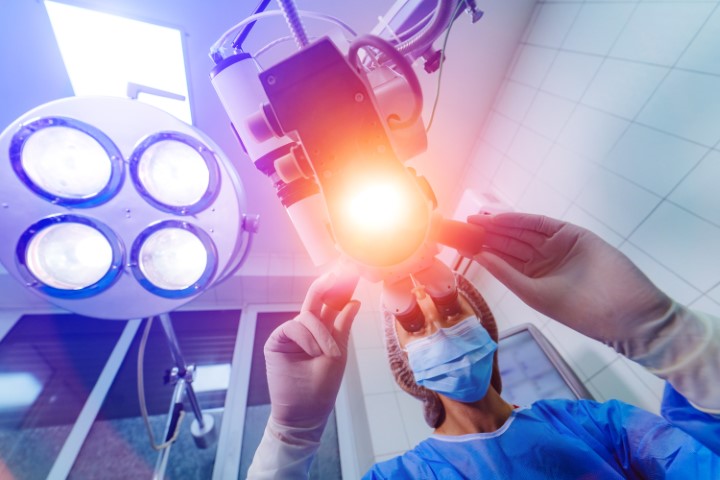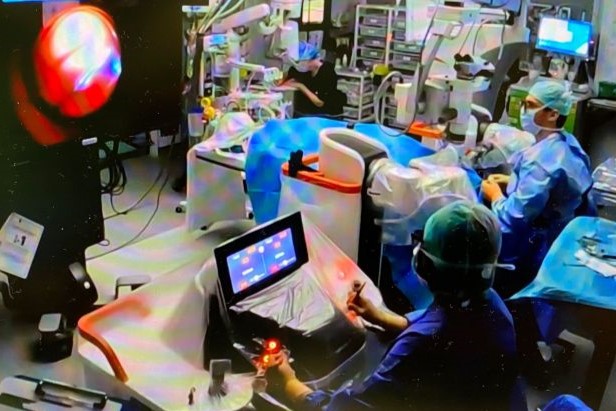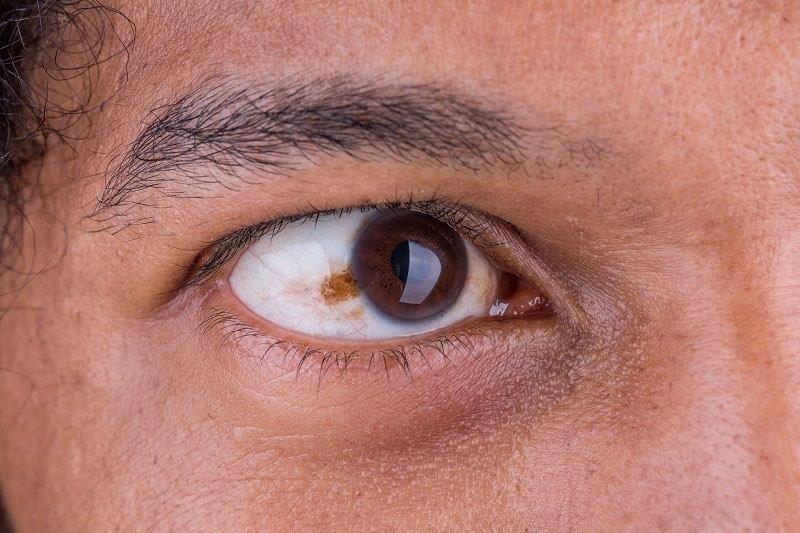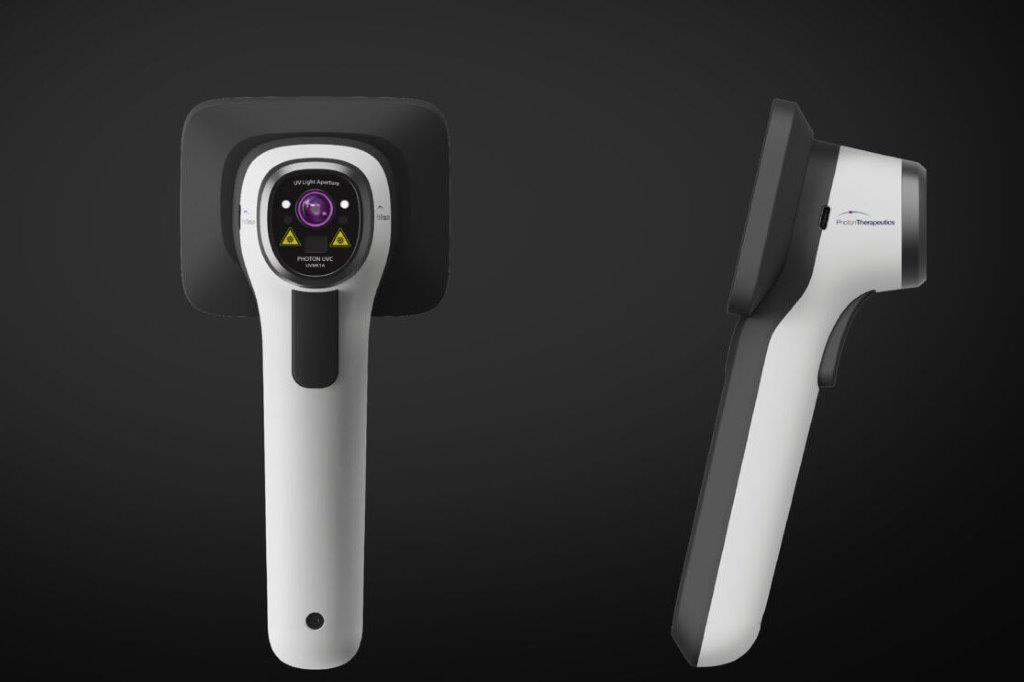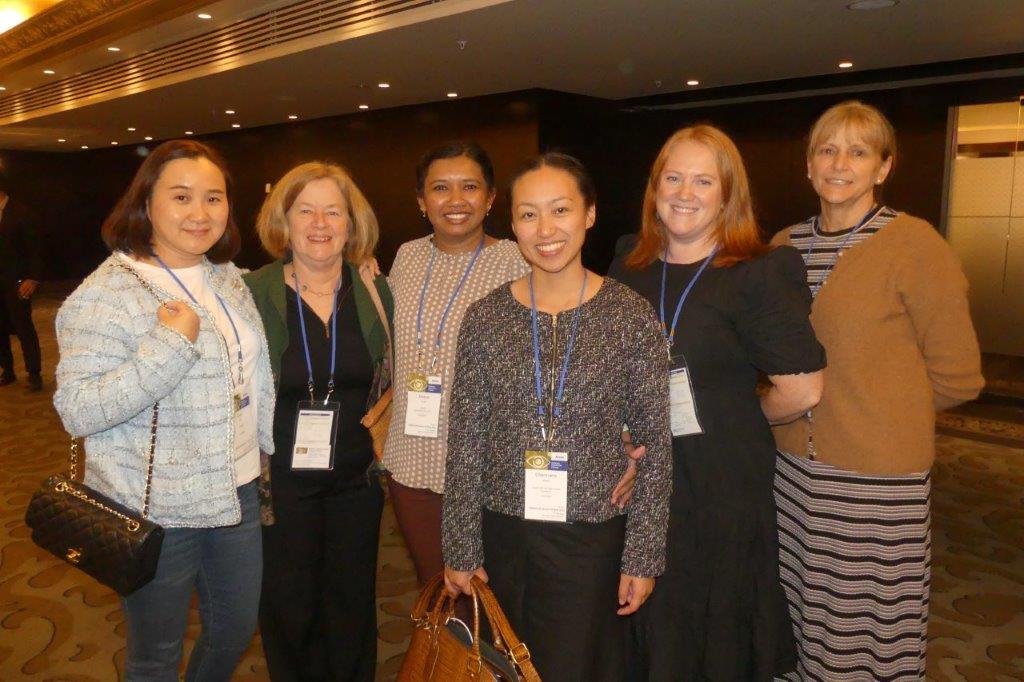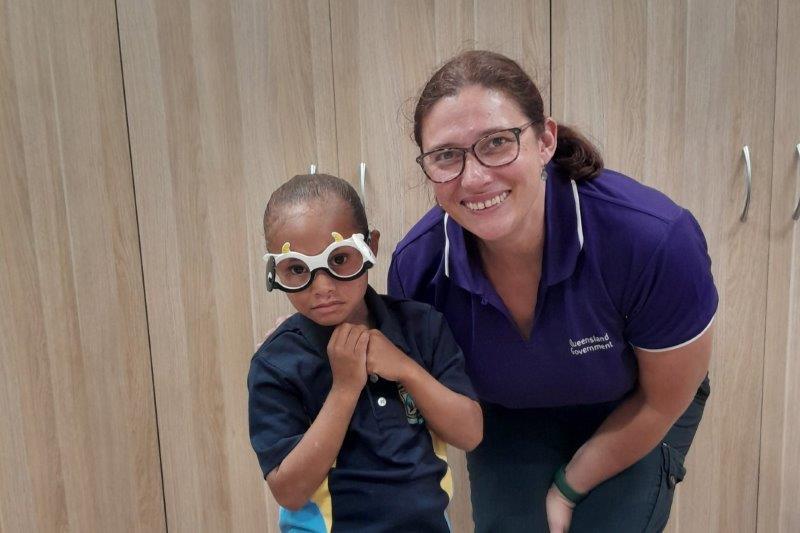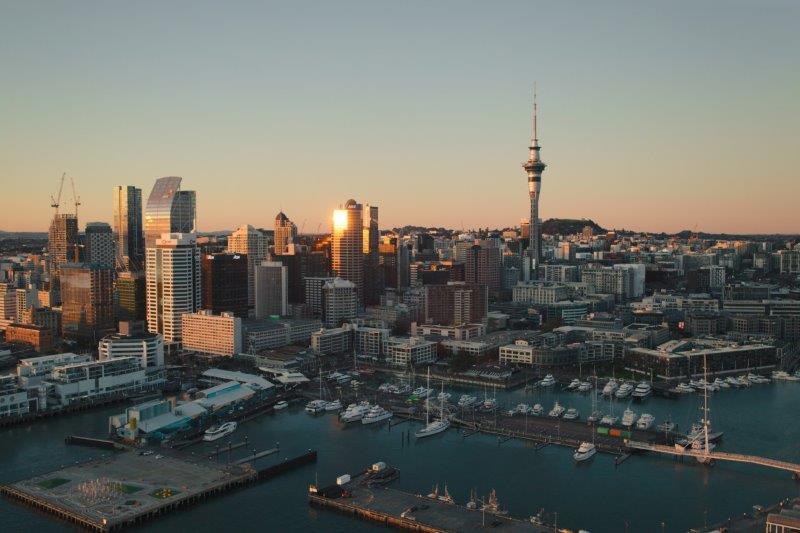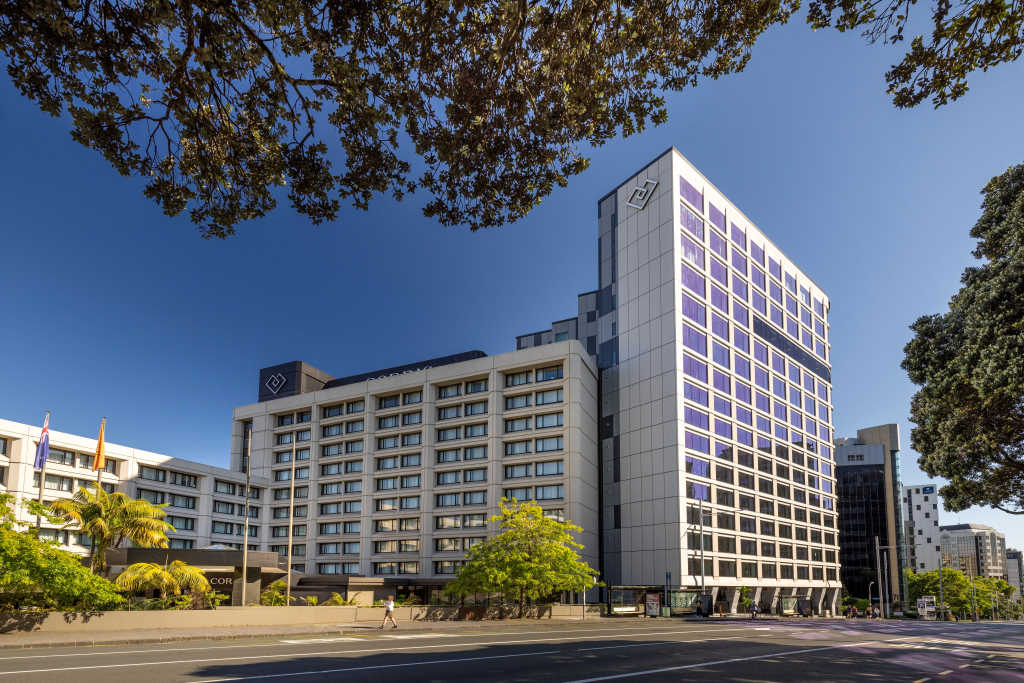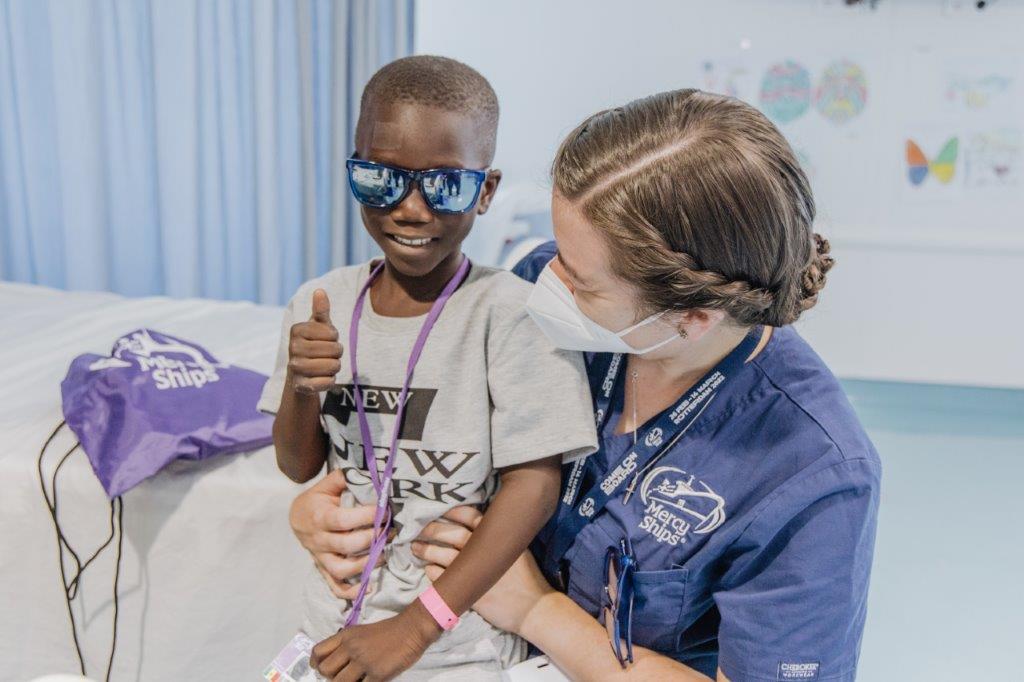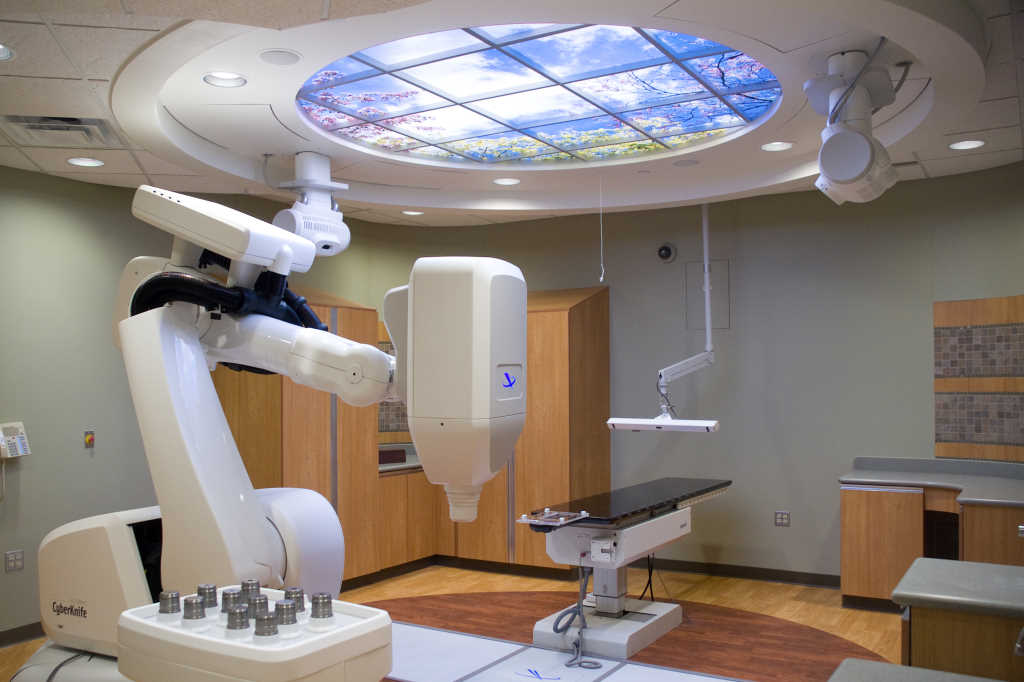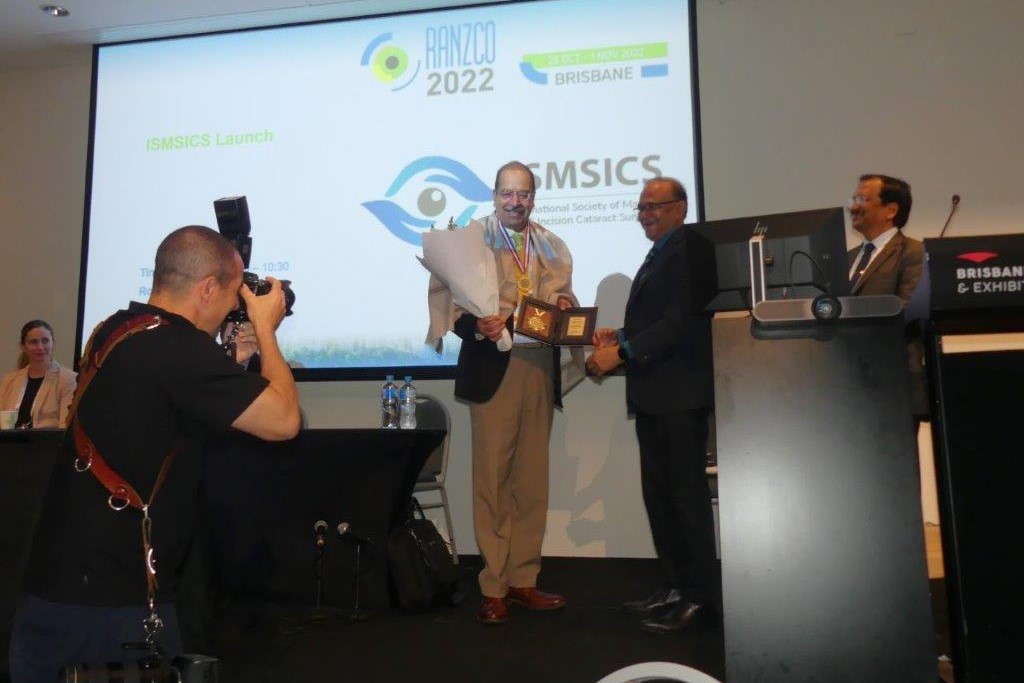Cataracts, oculoplastics, moving medal lectures and more…
I had the privilege of attending and presenting at May’s RANZCO New Zealand Branch meeting in Auckland. Its key themes were categorised by challenges, controversies and change, with a focus on cataract, glaucoma, oculoplastics and aesthetics, plus wellness and burnout. Leading these topics were international keynote speakers Professor Uday Devgan (US), known as the ‘Cataract Coach’, Dr Audrey Looi (Singapore), Associate Professor Simon Skalicky (Australia) and Liz Okely (Australia).

Sue Raynel and Kathryn Millichamp with keynote speaker Liz Okely and Dr Sarah Welch

RANZCO NZ 2024 organiser Dr Yi Wei Goh with Dr and Arvind Gupta
(Catar)action-movie star
Prof Devgan started cataractcoach.com in 2020 and has released at least one cataract surgery-focused video on the website every day since then! This and his YouTube channel are invaluable teaching resources for registrars and ophthalmologists. He performs 20-50 cataracts every day, he said, sometimes using two theatres simultaneously to increase efficiency. But despite having performed more than 30,000 cataract surgeries, he said he still experiences challenging cases and learns through his mistakes and failures.
Prof Devgan’s top tips for dealing with complex white intumescent and brunescent cataracts include the manual small-incision cataract surgery (MSICS) technique, where the entire lens nucleus is removed through the primary incision, keeping the capsular bag in place. Additionally, to avoid an Argentinian flag (a radial anterior capsular tear resembling blue and white stripes when using trypan blue staining), he proposed options including needle decompression with nucleus rocking, a small phaco burst into the anterior capsule, femtosecond laser capsulorhexis and the Zepto device.
With the development of robotic cataract surgery and accommodative lenses, the future of cataract surgery seems to be just around the corner. Robots have millisecond reaction speeds, compared to 100 milliseconds for a Formula 1 driver or 200 milliseconds for a high-volume cataract surgeon! Their deployment will have profound effects in reducing operative complications. Accommodative lenses are still under trial but have been shown to have a summative binocular accommodative amplitude of up to 4.5 dioptres. As these lenses are similar in size to the natural lens, the concern with implantation in narrow angles was raised; however, as A/Prof Skalicky reminded us, peripheral iridotomies will never go out of fashion!
Emissions mission
Melbourne-based A/Prof Skalicky is a glaucoma specialist, entrepreneur and skilled computer programmer. In 2019 he founded Eyeonic, supported by Microsoft, to provide online perimetry on any computer or tablet via a downloadable program. Having been trialled in South Africa, Uganda, Ethiopia, Vietnam and Ghana, the software has been shown to have high specificity and sensitivity, comparable to the Humphrey visual field analyser’s. Patients can perform perimetry from the comfort of their home while being virtually monitored by clinicians, breaking down barriers of cost and access, said A/Prof Skalicky.

Drs Taras Papchenko and Simon Dean with A/Prof Simon Skalicky

Drs Shira Sheen and Lior Lipsky
RANZCO’s sustainability champion Dr Jesse Gale discussed carbon footprints in glaucoma treatment, comparing SLT laser to management with long-term eye drops. Although he didn’t find a statistically significant difference between carbon emissions, the biggest contributor was patient travel to clinic. Therefore, minimising the environmental impact of glaucoma care requires minimising unnecessary travel and a laser-first treatment strategy ought to minimise the amount of surgical intervention, he said. An approach combining A/Prof Skalicky’s home-based glaucoma perimetry monitoring and Dr Gale’s application of SLT laser may allow us to increase our reach in previously difficult-to-access locations while reducing our carbon emissions – an important goal for RANZCO.

Drs Jesse Gale, Cam Loveridge-Easther, Rebecca Stack and Logan Mitchell

Drs Jo-Anne Pon, Michael Merriman, Adam Watson, Peter Hadden, Andrew Riley and Penny McAllum
Oculoplastic update
Oculoplastic surgeon Dr Looi shared her tips and tricks regarding thyroid eye disease (TED), blepharoplasty and ptosis surgery. The oculoplastic specialty still relies on anatomic and physiological principles that have been around for decades, she said. The exciting new development in TED is the emphasis on medical management, with medications such as teprotumumab (Tepezza, Amgen) - a fully human monoclonal antibody which has shown remarkable results in reducing proptosis. Unfortunately, one of this medication’s adverse effects is hearing impairment, affecting 10-50% of subjects. Despite this leading to the company facing many lawsuits, the drug is still FDA-approved. A new biosimilar, Batoclimab, is undergoing phase 3 clinical trials globally, with two Clinical Trials NZ research centres located at Waikato Hospital and Southern Eye Specialists, Christchurch, where patients are actively being recruited. This is an interesting space that will likely show a lot of promise in the future management of TED.

Dr Audrey Looi receiving her speakers’ gift from Dr Rebecca Stack following her Medal Lecture

Drs Ammar Binsadiq, Joel Yap and Verona Botha with RANZCO NZ chair Dr Liz Insull
Dr Looi also shared her blepharoplasty and ptosis repair techniques, highlighting the possible differences in the Asian eyelid compared to other ethnicities. Having achieved fantastic results with minimal scarring, her post-operative management involves keeping the wound area very clean, applying antibiotic ointment, moisturiser and anti-scar cream, and making her patients wear eye shields to avoid unnecessary touching. She also has a ‘light touch’ technique which she said she believes causes less inflammation and therefore less possibility of scarring. Dr Paul Rosser supported Dr Looi’s techniques, adding that the age-old recommendation of preserving a minimum of 20mm of eyelid skin in blepharoplasty surgery can be refuted with great results when tailored to the individual, actually increasing the procedure’s effectiveness.
Medal lectures and awards
The Dorothy Potter Medal Lecture was presented by Dr Looi, entitled ‘Towards perfection in ptosis surgery’. This focused on her technique for sub-brow blepharoplasty, which is a great adjunct to classic ptosis repair or upper lid blepharoplasties and addresses lateral hooding well.
The inaugural Professor Anthony Molteno Innovators Lecture was presented by Prof Devgan (see main picture), who discussed efficiency in the operating room and phaco complications. Our Waikato trainee ophthalmology registrar, Dr Vidit Singh (Prof Devgan’s number-one fan, who has seen all 2,202 of his videos!), got a shout-out from Prof Devgan when he mentioned that the ‘smoke sign’ saved one of his cataract cases from a phaco wound burn.

Drs Micah Rapata, Simone Freundlich, Natalie Allen, Lize Angelo, Joevy Lim and Esmeralda Lo Tam with Prof Charles McGhee (centre) after his moving John Parr Medal Lecture
The John Parr Medal Lecture was presented by our very own Professor Charles McGhee, chair of ophthalmology and director of the New Zealand National Eye Centre at the University of Auckland. Prof McGhee has been in New Zealand for more than 20 years and has been instrumental in many significant developments in ophthalmology in Aotearoa, including the development of the cataract risk stratification score, which has improved the success rate of cataract surgery in New Zealand significantly, and in growing the size and prestige of the University of Auckland’s Department of Ophthalmology. From just a few papers a year, on average the department now publishes two papers a week and has netted more than $56 million in research funds over the last 20 years, including $7.5million in 2023! Specialising in corneal diseases, including keratoconus and corneal dystrophies, Prof McGhee has performed more than 1,000 corneal transplants and has pioneered many surgical techniques, including corneal stem cell transplants and minimally invasive surgery for iris tumours, and is lauded in international circles, regularly making it into The Ophthalmologist’s annual Power List of the world’s top 100 industry leaders. My own experience, which has been echoed by many previous fellows, is of Prof McGhee being a monumental mentor and supervisor, dedicated to teaching his juniors and offering his time to support their personal growth, clinical skills and academic research. We will all be forever grateful for his immense contribution to us and to ophthalmology.
I would like to thank the RANZCO NZ organising committee for this year’s incredible conference and amazing keynote speakers. With rapid advances in technology, new medical management and advanced surgical techniques, ophthalmology and eye health are exciting specialties to be involved in. I foresee the profession driving more sustainable, equitable and efficient healthcare provision, keeping patient safety, sustainability and quality of life at the forefront.
RANZCO NZ 2024 Awards
- Professor Charles McGhee – The John Parr Medal Lecture: ‘Serendipity on the winding road of science and surgery’
- Dr Audrey Looi – The Dorothy Potter Medal Lecture: ‘Towards perfection in ptosis surgery’
- Professor Uday Devgan – The Professor Antony Molteno Innovators Lecture: ‘The future of cataract surgery: artificial intelligence…’
- Dr Lize Angelo – Best oral presentation by junior medical staff for, ‘A three-year investigation into management of keratoconus in Aotearoa New Zealand
- Dr Micah Rapata – Runner-up best oral presentation by junior medical staff for, ‘Te hauora karu o te iwi Māori/The state of Māori ocular health
- Dr Natalie Allen – Highly commended oral presentation by junior medical staff for, ‘Trends in corneal donation 2013-2022 in Aotearoa: impact of donor age, gender, ethnicity and Covid-19
- Amy Choi – Best medical student paper for, ‘Vision impairment and dementia in Aotearoa New Zealand
- Dr Isaac Samuels – Best poster presentation by junior medical staff, for ‘He whakaaro o Ngā mata o te Ariki: qualitative feedback of a Māori model of eyecare’

Prof Jennifer Craig, Dr Isaac Samuels and Jordan Cooper with their winning poster
Dr Lize Angelo is a current prevocational ophthalmology registrar in Hamilton, Waikato. She submitted her PhD in January 2024 on the management of keratoconus, spanning diagnosis, referral, access and attendance to secondary and tertiary centres, plus costs to patients and society. This was completed under the supervision of the University of Auckland’s Drs Akilesh Gokul and Mo Ziaei and Professor Charles McGhee.







